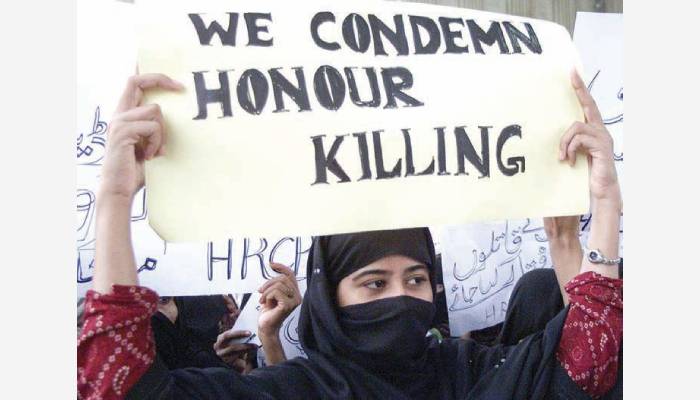
or

HONOUR killing is a misnomer and misunderstood concept. One can actually call it “owner killing” – the murder by an “owner” of a human he/she considers an “asset” at the time when the victim is trying to convert his/her ownership without the consent of the “owner”.
Honour killing in India has unfortunately been reduced to the usage of such adjectives. Also called customary killing, honour killing is the murder of a female member of a family by other members and/or the social group due to the belief that the victim has brought dishonor to the family/community. Honour killings are mostly directed against the female members but now even men are coming under its grip.
Honor killings have been reported from across the country, especially from the northern and southern states. These include Punjab, Rajasthan, Haryana, Uttar Pradesh, Andhra Pradesh, Tamil Nadu, etc. The reasons are usually the victims marrying without their family’s acceptance, or marrying outside their caste or religion; losing virginity; non-approved relationships; for seeking divorce, child custody issues and even eloping, rape andpregnancy. Reported now from various cultures, the crime is committed mainly by fathers and other family members against their daughters with meticulous planning
There are various reasons enumerated along with case studies to explore reasons behind honour killings:
The khap panchayats or village councils or kangaroo courts have been announcing such Talibanesque diktats mainly because they consist of members of the dominant caste of a village. These panchayats assume they have the power and rightful authority to deal with the ‘objectionable matrimonies’ and hence, give their ‘verdicts’ and even pressurize their family members to execute their verdicts. This directly intervenes with Articles 14, 15(1), 15(3) and Article 21 of the Constitution which relate to right to live, right to move freely, right to equality and right to security.
So far, honour killings have been dealt under Section 300 of the Indian Penal codefor commission of murder with life sentence, death or fine, Section 307 attempt to murder, Section 120 A and B for being party to criminal conspiracy and Sections 107-116 for abetment of offences such as murder or culpable homicide.
Honour killings include torture, mutilation, rape, forced marriage, imprisonment within the house and even murder. Moreover, these crimes are intended to protect the family honour by preventing and punishing a woman for allegedly violating community norms of behavior, particularly sexual behavior. This is in direct violation of human rights. At present, there is no special law under the IPC that deals with honour killings. There is also no law which punishes the illegal and often barbaric actions of the Khap or community panchayats or other caste or religious associations. Some offences under the IPC 1860 are invoked to book offenders in these cases but these offences do not cover the entire gamut of illegal actions perpetrated in the name of honour or prescribe adequate punishment for these barbaric acts.
Rajwanti is second year LL.M student at Rajiv Gandhi National University of Law, Patiala, Punjab.

Lex Witness Bureau

Lex Witness Bureau

For over 10 years, since its inception in 2009 as a monthly, Lex Witness has become India’s most credible platform for the legal luminaries to opine, comment and share their views. more...
Connect Us:


The Grand Masters - A Corporate Counsel Legal Best Practices Summit Series
www.grandmasters.in | 8 Years & Counting
The Real Estate & Construction Legal Summit
www.rcls.in | 8 Years & Counting
The Information Technology Legal Summit
www.itlegalsummit.com | 8 Years & Counting
The Banking & Finance Legal Summit
www.bfls.in | 8 Years & Counting
The Media, Advertising and Entertainment Legal Summit
www.maels.in | 8 Years & Counting
The Pharma Legal & Compliance Summit
www.plcs.co.in | 8 Years & Counting
We at Lex Witness strategically assist firms in reaching out to the relevant audience sets through various knowledge sharing initiatives. Here are some more info decks for you to know us better.
Copyright © 2020 Lex Witness - India's 1st Magazine on Legal & Corporate Affairs Rights of Admission Reserved